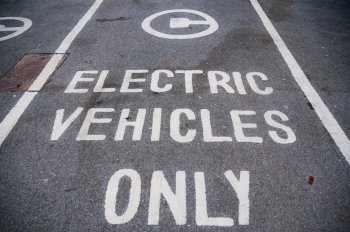European due diligence legislation and EU trade policy
Organised by the Rosa-Luxemburg-Stiftung Brussels, a member organisation of transform! europe
Wednesday, 2 June 2021
13:00 – 14:30 (CET)
Languages:
German, Bahasa Indonesia, English, Spanish
The European Green Deal as presented by the European Commission in December 2019 and the urgency to find answers to the global climate heating advanced the discussion on clean mobility solutions. Battery electric vehicles are considered as “ecological”, locally low-emission vehicles.
But it is clear that the production of electric cars, its batteries and the extraction of raw materials such as lithium and nickel cause a significant ecological footprint.
According to the European Commission, for electric vehicle batteries and energy storage, the EU would need up to 18 times more lithium in 2030, and almost 60 times more lithium in 2050, compared to the current supply to the whole EU.
Lithium for the electric vehicle batteries production comes mainly from Latin America and accounts for 50 percent of global production. One significant problem there is the negative impact of water extraction on the nearby arid ecosystems from the Andes.
For nickel, one of the main raw materials in electric batteries, Indonesia is currently the biggest source, but here social and environmental exploitation is prominent, with air – and seawater pollution being especially large threats. In view of the rising demand, Indonesia senses an opportunity to help its own industry make a breakthrough. The government no longer wants to act only as a supplier of raw materials, but to process the sought-after metal in its own country.
On 10 March 2021, the European Parliament called for the urgent adoption of a binding EU law (due diligence legislation) that ensures companies are held accountable and liable when they harm – or contribute to harming – human rights, the environment and good governance. It must also guarantee that victims can access legal remedies. The European Commission has announced it will present its legislative proposal on the matter later this year.
The planned EU-Mercosur trade agreement will have an important impact on the conditions for extraction, processing and trade of raw materials such as lithium in Argentina. For example, it will jeopardize government measures for restricting exports if the EU-Mercosur trade agreement were to come into force. EU leaders should put the current deal on ice and renegotiate it on the basis of a mandate that reflects the climate emergency as well as the need to save the Amazon rainforest and its peoples.
During this conference, we would like to discuss with trade unionists and researchers from the nickel processing industry in Indonesia, a researcher from Argentina, and a member of the European parliament (THE LEFT) the following questions:
- Which are the ecological and social consequences of the EU’s push to battery electric vehicles in the respective countries such as Indonesia and Argentina?
- How to change the nickel extraction and nickel processing in Indonesia to meet ecological and social standards?
- How to change the lithium extraction in Argentina to fulfill the demands of local communities with regard to social and ecological standards?
- Which impact will the EU-Mercosur trade agreement have on Argentina’s lithium extraction?
- What kind of trade policy do we need to support the fight against climate change?
- What kind of European due diligence legislation do we need to stop infringements on human rights and the environment?
- Who could be possible allies in this fight?
Speakers
Helmut Scholz, MEP, The Left, committee for international trade
Pius Ginting, AEER (Aksi Ekologi & Emmansipasi Rakyat), Indonesia
Melisa Argento, University of Buenos Aires, Argentina
Afdal Amin, SPIM labour union, Indonesia
Facilitator
Manuela Kropp, Rosa-Luxemburg-Stiftung Brussels
Originally published at the website of Rosa Luxemburg Stiftung Brussels Office
